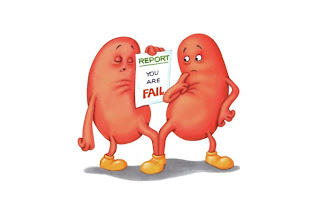
The kidneys have an important role of maintaining the balance of body fluids within the human body. They regulate the electrolyte concentrations, blood volume and also blood pressure.
They receive unfiltered blood from the heart and the filtration of blood is carried out within the kidneys and then the filtered blood is sent back to the heart. The kidney function involves removal of metabolic waste from the blood stream, regulating water balance in the body and maintaining acidity and alkalinity of body fluids.
An individual can live with one kidney as the renal tissue available in one kidney is sufficient to carry out its function. When the functioning tissue gets reduced it leads to kidney malfunction.
Blood urea nitrogen (BUN) is a blood test conducted to asses functioning of the kidneys. Urea is a waste product of the protein metabolism and formed in the liver. The kidneys filter urea from the blood and this gets excreted in the urine. BUN normal range is 7-20 mg/dl and if the result of the blood test shows a higher figure, then kidney malfunction is a possibility.
Serum creatinine is another blood test used for evaluating the kidney function. Creatine is a molecule used for energy production in muscles. About 2 percent of the body creatine gets converted to creatinine on a daily basis. Creatinine is transported to the kidneys through the blood stream. The kidneys carry out the filtration of creatinine for disposal in the form of urine. As the muscle mass remains unchanged, the creatinine level also remains unchanged on daily basis.
Hence, creatinine level test conducted on blood can reveal any malfunction of kidneys. The normal level of creatinine is 0.6-1.2 mg/dl for adult males and 0.5-1.1 mg/dl for adult females. The creatinine level in the blood will tend to rise if the kidney function has deteriorated.

No comments:
Post a Comment